Offering a premium lifestyle with top-notch amenities and exclusive residences, some of the most expensive places to live in Abuja include places like Maitama, Asokoro, Apo, Guzape, and Garki.
In a 2017 global cost of living survey, Abuja, Nigeria’s capital, known for its fancy living spaces, was rated the 59th most expensive city due to its high cost of living. It is just as posh as Lagos and Port Harcourt, full of fancy apartments and places to stay, making it one of Nigeria’s most expensive places to live.
Living in Abuja costs a lot because of the fancy lifestyle and the many job opportunities available, as well as several other factors, including difficulty in accessing public land due to land grabbing by the elite, a rigorous master plan demand, inflation, and the fact that Abuja is still primarily a government-run city.
When choosing the perfect neighborhood in Abuja, the options are as diverse as they are enticing. Each area has its unique charm and allure, from the tranquil green havens like Jabi, to the bustling urban districts like Wuse.
The late Nelson Rolihlahla Mandela once said about Abuja, “Why bother to visit Europe? You’ll find it all here.”
With its luxurious apartments, upscale hotels, and exquisite real estate offerings, the city beckons those with discerning tastes to indulge in its lavish lifestyle.
If you’re thinking about moving to Abuja but need help figuring out where to go, don’t worry. This article talks about the most expensive places to live in Abuja.
READ ALSO: 15 Best Cities And Places To Live In Alberta, Canada
The Most Expensive Places to Live in Abuja
In exploring the crème de la crème of Abuja’s neighborhoods where luxury knows no bounds and extravagance reigns supreme, Abuja’s most expensive districts based on living costs, including rent and essential consumables, etc., are: (please note the list is not in order of hierarchy):
1. Maitama

Nestled in the lap of luxury, Maitama epitomizes elegance and sophistication. Home to diplomats, politicians, ex-politicians, and wealthy individuals, this high-end neighborhood boasts sprawling mansions, upscale hotels, and exclusive shopping centers.
A 5-bedroom detached house in Maitama can cost anywhere between ₦200 million to ₦2 billion, making it one of the most coveted addresses in Abuja and a reservation for the few percent of citizens that can afford it.
If you can cough out N2.5 million for a 2-bedroom flat for 12 months or spend close to N100,000 for regular groceries for a family of 4 at any expensive supermarket (212 or Classic), then it’s no big deal to reside in this part of Abuja.
Major roads in Maitama are Murtala Mohammed Way, Shehu Shagari Way, IBB Way, Aguiyi Ironsi Street, and Gana Street.
Notable locations include The Dome, Independent National Electoral Commission, Nigerian Communications Commission (NCC), British Council, Transcorp Hilton, and Minister’s Hill.
2. Asokoro:
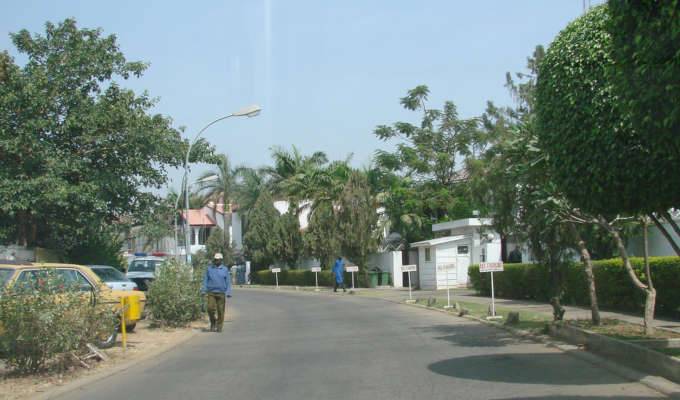
As one of the most expensive places to live in Abuja, renowned for its security and exclusivity, Asokoro is home to the presidential villa and numerous government buildings.
This prestigious neighborhood features large, luxurious homes and chic amenities, such as golf courses, shopping malls, and private schools, and is a favorite among diplomats and high-ranking officials.
As expected, properties here are costly. A plot of land in the district can run into billions of naira. A 4-bedroom detached house in Asokoro can command prices ranging from ₦100 million to ₦15 billion.
Other notable buildings in the area include the World Health Organization (WHO) office, the Economic Community of West African States (ECOWAS) Secretariat, the National Intelligence Agency, etc.
The amount you get for a property here depends on location, size, purpose, etc. But one well-known fact is that they don’t come cheap.
3. Wuse:

Next on our list of the most expensive places to live in Abuja is Wuse, also under the FCT’s Phase 1 development plan.
This district competes with Maitama for living costs. Still, it is more of a commercial district, home to expensive restaurants and hospitality centers, such as the Exclusive stores, Juice Place 2, Quarter Café, Woks, and Koi, among other high-flying places that the big spenders in town love to frequent.
Examples of notable places in this area include the General Post office, Sheraton Hotel, Rockview Hotel, Banex plazas, SilverBird Cinema, FRSC, FERMA, NAFDAC, EFCC, AGIS, and the famous Wuse Market.
4. Apo:
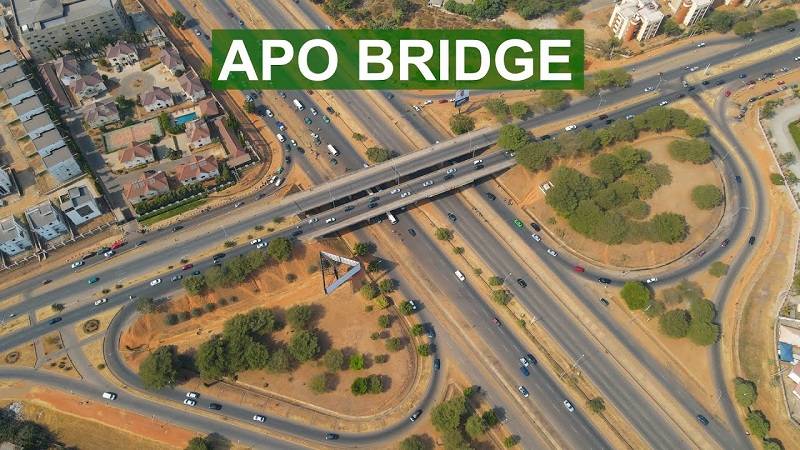
With its array of top-notch housing estates and proximity to amenities, Apo is fast becoming a sought-after residential destination.
This vibrant neighborhood offers a balance of quality living, making it ideal for families and professionals.
A 3-bedroom apartment in Apo can range from ₦25 million to ₦50 million, offering value for money in Abuja’s competitive real estate market.
Places of interest in Apo include Copa-Cabana, Acropolis Park, The Mechanic Village, and Novare Mall.
5. Guzape:
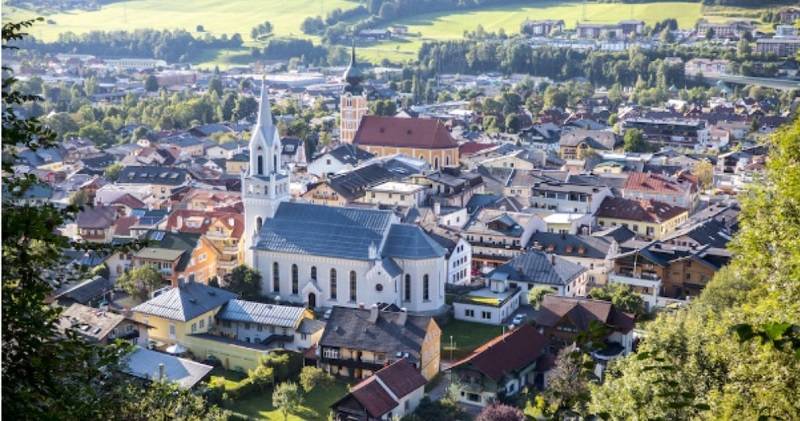
Guzape has a unique topography, with the land being green and hilly. This factor has contributed to the relatively late development of the area. However, given its high elevation, the neighborhood allows for some breathtaking views of Abuja.
Guzape is currently an attractive location to invest in real estate, which is why the area is growing quickly. This development is a direct result of the area’s growing population.
Its outstanding Phase 1 location, gorgeous surroundings, and tranquil atmosphere have made it a more sought-after neighborhood for the wealthy.
The architecture of the homes in this neighborhood is among the most exquisite in all of Abuja. This makes it one of the most expensive places to live in Abuja due to the high cost of land and homes.
Despite Guzape’s lack of major commercial development, enough social amenities are nearby to keep locals occupied. In response to the demand, several markets, restaurants, pubs, and stores have lately opened.
There are numerous foreign embassies close to the neighborhood. Other sites worth seeing include African Independent Television (AIT), Channels TV, Myra Event Center, and Africa Community School.
6. Garki:
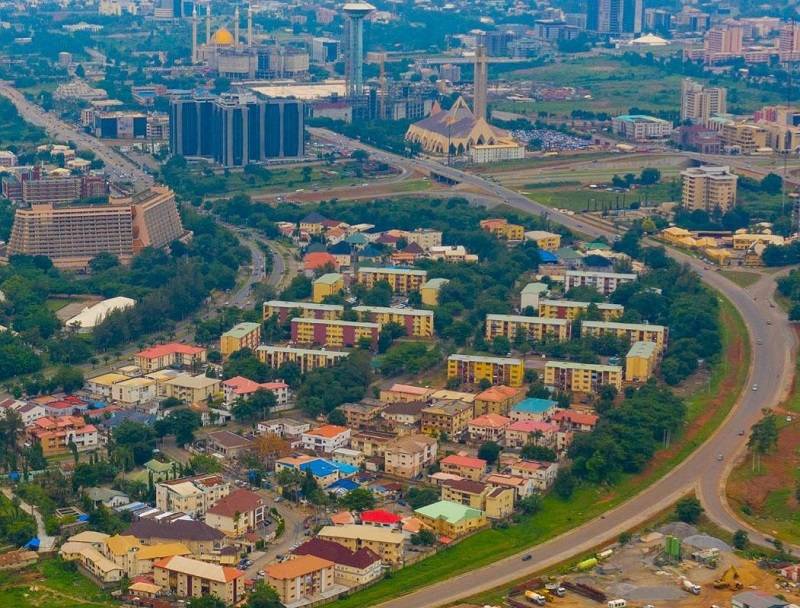
Known for its high-end housing and wide streets, Garki offers affordability and luxury. The Garki neighborhood has commercial and residential parts; just like Wuse, it is one of Abuja’s principal commercial centers.
The neighborhood has offices of numerous commercial entities, including financial and governmental organizations.
The Garki area is home to the Federal Capital Development Authority (FCDA) of Abuja, The International Conference Center, Ultra Modern Market, Shagalinku Restaurant, and other notable landmarks.
The district shares many characteristics with Wuse, the main difference being that Wuse has more recreational activities than Garki’s more corporate business activities.
The commercial nature of the neighborhood offers plenty of employment opportunities, as it is frequently visited by people from other parts of Abuja for business, shopping, or other associated activities.
The abundance of hotels, shops, restaurants, gardens, and markets gives people plenty of leisure opportunities.
While prices in Garki are generally lower than in other upscale neighborhoods, the area still boasts exclusive amenities and a thriving real estate market.
7. Gwarinpa:
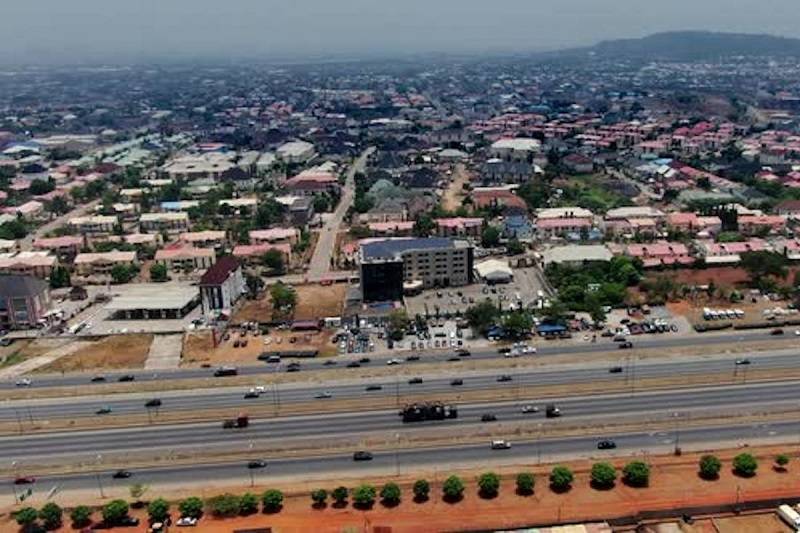
Gwarinpa is located in the phase 3 development layout of Abuja. Boasting the title of the largest housing estate in West Africa, Gwarinpa offers a mix of affordability and community living, making it a preferred choice for residents seeking a peaceful yet well-connected community.
With its tree-lined streets, well-maintained parks, and well-designed layout, Gwarinpa presents a picturesque setting for families, professionals, and individuals from all walks of life.
The neighborhood has diverse residential properties, ranging from spacious standalone houses to contemporary apartments and townhouses.
Gwarinpa also boasts a range of amenities, such as schools, hospitals, shopping centers, recreational facilities, and vibrant markets, ensuring that residents have access to all essential services within close range.
While prices in Gwarinpa are generally lower than in other upscale neighborhoods, the area still maintains a high standard of living.
It boasts modern amenities, with a social life that is as expensive as you can get, making it one of the most expensive places in Abuja.
A 4-bedroom townhouse in Gwarinpa cost between ₦6 million to ₦180 million per annum for rentage or lease, catering to those seeking a spacious living in a vibrant community.
8. Jabi:
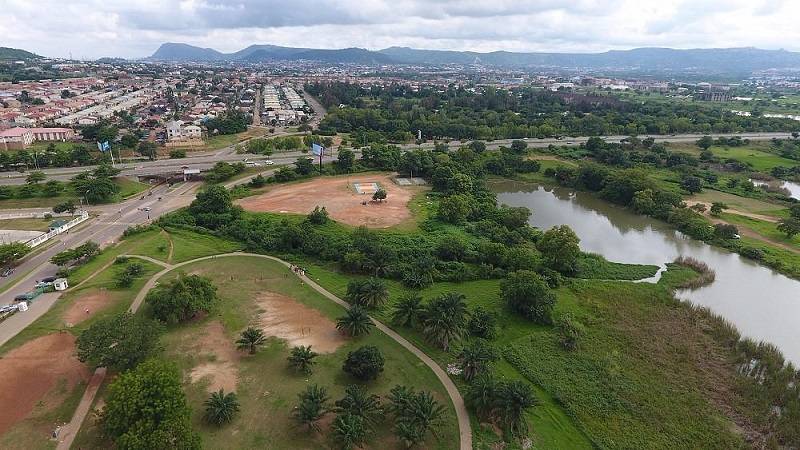
Jabi is located within the phase 2 vicinity of the Abuja Municipality, known for housing the iconic Jabi Lake (an artificial reservoir with a surface area of approximately 1,300 hectares) and mall.
Centrally located and surrounded by government offices and businesses, Jabi offers convenience and accessibility to its residents.
With its green open spaces and tree-lined streets, this neighborhood exudes tranquility amidst the hustle and bustle of city life.
With its good location and peaceful environment, real estate in Jabi carries a premium property value making it one of the most expensive places to live in Abuja.
By extension, the rent cost is increasing, especially in locations nearer to the district’s parks. A 3-bedroom apartment in Jabi can vary from ₦20 million to ₦50 million, offering a serene retreat in the heart of Abuja.
Conclusion
The most expensive places to live in Abuja redefine luxury living, offering a blend of elegance, sophistication, and exclusivity; from stunning architecture to world-class facilities, these neighborhoods set the standard for luxury living in the nation’s capital.
Whether you seek magnificent mansions or modern apartments, Abuja’s neighborhoods cater to every discerning taste. So why settle for anything less when you can experience the epitome of luxury in Nigeria’s capital city?










These places are really expensive to live. Abuja be like new york
Hi Gud day
Pls I’m looking for accommodation in Abuja location
Maitama or Asokoro or Wuse ll
Pls anyone available drop video on my WhatsApp 08163318296